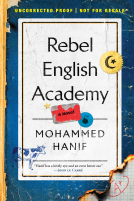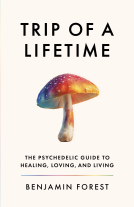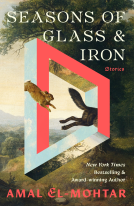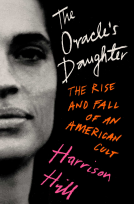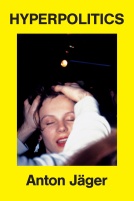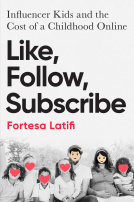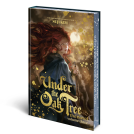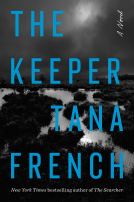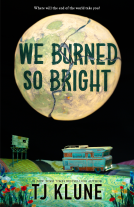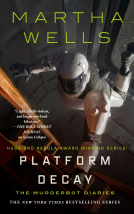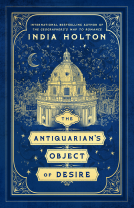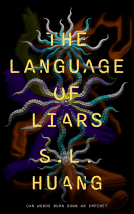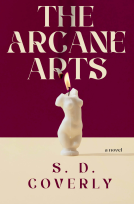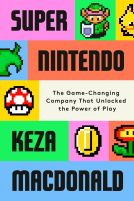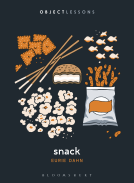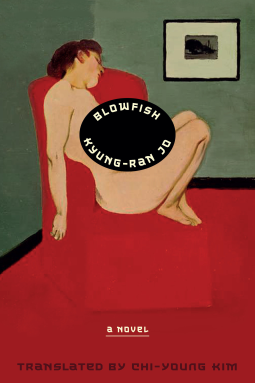
Blowfish
A Novel
by Kyung-Ran Jo
This title was previously available on NetGalley and is now archived.
Send NetGalley books directly to your Kindle or Kindle app
1
To read on a Kindle or Kindle app, please add kindle@netgalley.com as an approved email address to receive files in your Amazon account. Click here for step-by-step instructions.
2
Also find your Kindle email address within your Amazon account, and enter it here.
Pub Date Jul 15 2025 | Archive Date Aug 09 2025
Astra Publishing House | Astra House
Talking about this book? Use #Blowfish #NetGalley. More hashtag tips!
Description
—Michael Welch, Chicago Review of Books
For readers of Han Kang and Sheila Heti, an atmospheric, melancholic novel about a successful sculptor who decides to commit suicide by artfully preparing and deliberately eating a lethal dish of blowfish.
Blowfish is a postmodern novel in four parts, alternating between the respective stories of a female sculptor and a male architect. Death is the motif connecting these parallel lives. The sculptor’s grandmother killed herself by eating poisonous blowfish in front of her husband and child, while the architect’s elder brother leapt to his death from the fifth floor of an apartment building. Now, both protagonists are contemplating their own suicides. The sculptor and architect cross paths once in Seoul, and meet again in Tokyo, while the sculptor is learning to prepare a fatal serving of blowfish.
The narrative loosely approximates a love story, but this is no romance in the normal sense. For the woman, the man is a pitstop on the road to her own suicide. For the man, the woman forestalls death and offers him a final chance. Through the conflicting impressions they have of one another, the characters look back on their lives; it is only the desire to create art that calls them back from death.
Evoking the heterogeneous urban spaces of Seoul and Tokyo, Blowfish delves into the inner life of a woman contemplating her failures in love and art. Jo’s fierce will to write animates the novel; the lethal taste of blowfish, which one cannot help but eat even though one may die in doing so, approximates the inexorable pains of writing a novel.
Marketing Plan
MARKETING AND PUBLICITY PLANS • National media campaign including print and online coverage, as well as podcast and radio interviews • Pitch for features stories, interviews, and profiles in major publications • Pitch excerpt in national publication • Robust awards campaign • Targeted outreach to publications focused on translated literature, Korean authors, feminist narratives, food media, and art • Outreach to indie booksellers, especially those interested in translation, feminism, and Asian narratives • Cover reveal on Astra House social media • Influencer outreach
Available Editions
| EDITION | Other Format |
| ISBN | 9781662601781 |
| PRICE | $27.00 (USD) |
| PAGES | 304 |
Links
Available on NetGalley
Average rating from 116 members
Featured Reviews
 Librarian 876959
Librarian 876959
I've never quite read a book like this before, but I found it very compelling. A bit slow and meandering, but in a way where one can't help but enjoy the journey. I like books where the prose itself lulls you into the world of the story, and this was no exception. Deeply unconventional, but no less enjoyable. Kudos to the translator!
Blowfish was a beautiful and intense study of two characters whose lives are vastly different and yet they share the same desire…to no longer exist in this world. I loved the psychological examination of both characters, as well as the non linear (ish) story telling. Learning about past experiences of not just the main characters but their families and friends was both heartbreaking while somehow being hopeful at times. It goes without saying that the subject matter is heavy and could be triggering for some readers (myself included) so keep that in mind if you’re picking up this book. Overall, this was a fantastic translation of a story that I think many people may find relatable. 4.5/5 stars!
"when she had said her final goodbyes, Abe-san said one thing and one thing only, his face inscrutable: "Sayonara!"
Maybe he knew all along, the only reason she met him was to get closer to death.
the reason why she dedicatedly learnt about blowfish was not to be cautious about removing its poison, but to extract the precise thing, to build the final piece of art of her career- her own death.
BLOWFISH tells the story of two people, a successful sculptor who decide to commit suicide by artfully preparing a lethal dish of blowfish and consuming it, and a male architect- whose brother's suicide haunts him throughout his life. as life brings them together- two times- things inevitably gets entangled. Chaotic.
This book reeks of death. every page of this book carries the musty scent of death, blended with the warm blood of the blowfishes Abe-san cured for her. depressing, dark and hauntingly relieving. She orchestrates her death for her. As a final tribute to the life she led, to the eyes that watched her. To the world and fate that made her come to that decision.
I wouldn't say I enjoyed this book as a whole, but a million details, a million instances, a million times the characters made me reconsider the philosophy of my own life- this book is a strong literary piece. it's strong enough to claw your heart and hang onto it, when the arteries tear and bleed. i would say that i enjoyed this book as a million individual pieces, each having its own independent existence, relevance, and arrival in my life in the future.
"when she happened to look through his diary, she discovered that each entry began with "If I live".
BLOWFISH is the testimony of the darkest alley of the human existence, crawling through the gutters of disparity, lost hopes rotting at the far end of the dungeon. Kyung-Ran Jo crafted this novel as a masterpiece, where the blowfish swimming passively in the tank representing the woman's contemplation of failures in life, love, and art.
"Isn't half of life embarrassment? And the rest of it fear and greed?"
This book pulled me back to the time when i read 'The Vegetarian' by Han Kang and now i'm excited to read the other works of Kyung-Ran Jo.
But before that, i need to learn how to cook a Blowfish.
Thank you Astra Publishing House and NG for sending the Advance Reader Copy of this book.
Blowfish is a haunting, cerebral meditation on art, death, and the fragile threads that tether us to life. Told in four interwoven parts, this postmodern novel is less a conventional narrative and more a quiet reckoning—a slow, aching dissection of two lives orbiting despair, flickering with the faintest pulses of connection.
The alternating stories of a female sculptor and a male architect are elegantly constructed, each echoing with personal tragedy: a grandmother’s violent suicide by poisonous blowfish, a brother’s fatal leap. These events linger like ghosts in the protagonists’ minds, shaping their present and clouding their futures. Their occasional intersections—in Seoul and later Tokyo—are charged not with romance but with the muted tension of people standing at the edge of something final, perhaps irreversible.
The prose is sparse and emotionally restrained yet deeply evocative. The cities—Seoul and Tokyo—aren’t just backdrops but living entities layered with memory, silence, and a strange kind of beauty. Through these urban landscapes, the novel explores alienation in modern life and how creativity can be both an escape and a reason to stay alive.
Despite its somber subject matter, Blowfish is not without hope. Art becomes a lifeline, a fragile but luminous thread that binds the two protagonists to the world and each other, however fleetingly. Jia resists tidy conclusions or dramatic catharsis, offering a subtle, thoughtful look at what it means to create in the face of despair.
The publisher provided ARC via Netgalley in exchange for an honest review.
Some says it reminds them of Han Kang, but it leans towards Mieko Kawakami's All the Lovers in the Night, Moshfegh's My Year of Rest and Relaxation, Marguerite Duras' The Lover & Territory of Light by Yūko Tsushima- in Moshfegh case; losing hope of living & Tsushima for lumionous, hypnotic language style.
As the summary goes, you can guess the tone and mood- it's dark and sardonic, and some are devastating.
"She had once said to him, “Isn’t half of life embarrassment? And the rest of it fear and greed?”She hadn’t explained herself, but he’d understood that the rest meant death. He had to tell her that the truly embarrassing thing wasn’t always thinking about death and being pulled toward it, but having never loved anyone."
I love how blowfish as a general statue in this book- from how it represent pressures (one wrong cut and you're out. literally), the God complex (on how u can choose to live or die just by eating the same thing), and subsequently, delicacy in Japan and Korea, but one that can be fatal if prepared incorrectly. This duality is something beautiful and refined yet harboring death- mirrors the inner lives of the main characters.
Definitely would recommend this! 4.5/5.
I enjoyed this. It was a fun and interesting read - it really made me have deep moments of thought. It also made me really appreciate the life that I’m living. I enjoy being in the head of such a complex character.
 Reviewer 935316
Reviewer 935316
thank you astra house for this early arc ebook!
i was super excited and nervous to read this book. mostly nervous because the premise is so tempting to me, nervous because what if it doesn’t deliver.
but it delivered. a book with alternating POVs, about two people who live in a creative art space of the world and who have a life touched by suicide.
not much of this book is dialogue, more descriptions of areas, thoughts, past/present situations, but the author had the ability to create this intense relationship between the two main characters. i enjoyed the read very much, and felt the only thing truly missing was more conversation.
 Reviewer 1671693
Reviewer 1671693
Suicide is a difficult subject to discuss, let alone write about. This is because ending one’s life is a totalising decision to make, and because of this totalisation—voluntarily reducing all history, anticipation, future, time, and reality to nothing, it is often either mischaracterised in literature as a completely irrational decision made by someone who is obviously ‘wrong’, or it is treated too metaphorically, too aesthetically, in so much that the overwrought-ness of prose can detract from the extremely serious subject-matter—in essence, the sign taking precedence over the signified. An author tackling the subject therefore has to meet the difficult balance of empathetic presentation without making light of the act through its description of it. It is so difficult to write about that even writing this review is difficult and writing words about suicide is difficult. But it is so very important that there are works addressing the topic, and by empathising with those who have suicidal tendencies and/or have experienced suicide in the family through literature, we can learn better how to be there for those in our own lives.
Blowfish by Kyung-Ran Jo is a novel about suicide. It tells the story of two protagonists, their point-of-view alternated between chapters: the first, a successful female sculptor who, from the very beginning of the novel, we find has decided to end her life, ‘choosing death’ after reflecting on the suicide of her own grandmother; the second, a male architect who is attempting to recover from the recent suicide of his brother and balances his work life alongside his fractured family life, including dealing with the newly-stirred suicidal tendencies of his father. Both characters meet at an event dinner in Seoul, and their paths cross again at an event in Tokyo. The Sculptor, deciding on a method of suicide, intends to find out how to procure and prepare blowfish in a way that kills her. The Architect, reeling from trauma and guilt, looks to save this woman who has come into his life, not letting her be like the brother who slipped through his grasp.
Kyung-Ran’s writing is sparse and minimalist, with staccato sentences, metaphorical language, and very little flourish or description. It doesn’t hold your hand when it comes to exposition or chronology, which makes approaching the novel difficult initially. As mentioned, the chapters alternate between the female sculptor narrator and the male architect narrator, which is told in third person limited, and the protagonists are never given names, only referred to by their pronouns. The blurb to the novel calls it ‘postmodern’, and though I think it’s a nebulous term to apply in this case, it definitely comes with some of the difficulty associated with non-conventional literature. The effect of these deliberate stylistic choices is that Kyung-Ran offers a depersonalised heaviness; the experience of reading is existential and distressing, but gives the characters a humanising edge—the nameless protagonists could equally be given the name of anyone in our lives.
The depiction of suicidality in this novel was realistic and heavy. It is presented not as a decision made consciously, but as an urge, potentially genetic and familial, that is then justified intellectually after-the-fact. It is also presented as something with no true solution, just as in real life, people ‘slip through’ everyone’s grasp, and the guilt that comes with that can be immobilising. The Sculptor’s suicidal ideation is established from the beginning and this long thread continues throughout. The depiction of the Architect’s regret and trauma and how it seeped into his waking thoughts is similarly an inescapable continuum. The structure of the alternating perspectives of the novel will influence readers to believe that the characters can save each other. Perhaps they can, but Kyung-Ran doesn’t shy away from the idea that there is sometimes nothing one can do.
But though the novel is heavy, its ultimate intention is life-affirming. We are given breath through its portrayal of the life-affirming nature of art, specifically art in its relation to sculpture and architecture. I have always enjoyed when different artistic media is discussed within literature, and in Blowfish, learning about how interior and exterior spaces are designed in the Architect’s chapters, or learning how in the Sculptor’s chapters how she thinks about air, space, shape and form and its relation to herself and her artistic intentions was enlightening to read. The other life-affirming aspect is its presentation of love and companionship, and how much meaning in life can come from someone just being there for another, being there to speak, listen, and love unconditionally.
In a chapter late in the novel, the Sculptor discusses the concept of art with a friend. The Sculptor declares that all art is about ‘death’, her artist friend counters that it is about ‘life.’ It is a great encapsulation of the overarching theme of the novel. Because through all the death in this novel, what it is really about is life, like a glint of light in the dark. Or, perhaps, light and dark are intertwined, like the shadows in rooms that architects have designed, or the chiaroscuro in artwork. The same principles apply to literature, and Kyung-Ran Jo has delivered this message through this novel. What we learn is to covet this light within ourselves, to bring it to others, both in the form of art and design, but also in our friendships and relationships. To be by someone’s side, that is all we can do. There are no answers, but we can only try.
 Reviewer 1346818
Reviewer 1346818
Blowfish is a haunting exploration of art, death, and the delicate ties that anchor us to existence. Carefully structured in interwoven parts, this postmodern novel unfolds less as a traditional story and more as a quiet confrontation—a slow, poignant unraveling of two lives circling despair, illuminated by fleeting moments of connection.
The parallel narratives of a female sculptor and a male architect are intricately crafted, each shadowed by personal tragedy: a grandmother’s violent suicide through blowfish poisoning and a brother’s fatal plunge. These losses linger in their consciousness, shaping their present realities and clouding their sense of hope. Their fateful encounters—in Seoul and later in Tokyo—carry not quite a romantic spark but a profound connection, as if each meeting teeters on the brink of something irrevocable.
The prose is minimalistic and emotionally restrained, yet charged with deep resonance—qualities that become the novel’s greatest strengths.
Though steeped in sorrow, Blowfish still clings to a fragile sense of hope. Art emerges as a tenuous yet luminous thread, connecting the protagonists to life—and to each other, however briefly. Jia avoids easy resolutions and dramatic climaxes, instead offering a subtle, contemplative meditation on the act of creating in the shadow of despair.
Thank you to NetGalley for allowing me to read this fantastic e-ARC.
Thankyou Netgalley for allowing me to read this fantastic e-ARC
 J R, Reviewer
J R, Reviewer
gorgeous, grasping, tugging, ripping work filled with the scent of death and fish. the story is impeccable, but the contemplation even more so. 5 stars. tysm for the arc.
 Ebony W, Librarian
Ebony W, Librarian
This was a beautiful yet sad read. Two people whose lives are touched by suicide in some manner. One is set on ending their life while the other is given the chance to make a difference in someone’ else’s life. There’s not much dialogue but the author was able to convey a meaningful story through setting descriptions and backstories told from the character’s points of view. While this is a pretty short book, it is a slow read. I definitely took a couple breaks because I found myself not in the mood for it at times. Some things did feel unnecessary to the story but overall this was a moving piece.
 Donna M, Bookseller
Donna M, Bookseller
Blowfish is beautifully written, smooth as cream laced with something intriguing and hypnotic. Jo delves into the minds of two people haunted by death and meditating on their own inevitable demise, one with resignation and the other desperate for one last try at happiness. A somber premise, but Blowfish also explores life's absurdities as the main characters reflect on their choices and relationships. An absorbing, surprisingly relatable, and ultimately satisfying read.
Blowfish is a moody, atmospheric, and quietly devastating novel that lingers long after the final page. Both of the main characters—a sculptor and an architect—have been deeply marked by the suicides of loved ones, and they now move through life tethered to the notion of their own eventual deaths. What emerges is a narrative that uses the inevitability of mortality as both creative fuel and a slow, elegiac surrender.
I was especially drawn to the nonlinear structure and the way the story drifts between Tokyo and Seoul. These cities, while full of life and beauty, also carry a certain cold mysticism—perfect backdrops for this introspective, melancholic tale. As someone who often finds myself creatively stifled or emotionally overwhelmed, I found the novel’s tone deeply resonant. Its exploration of the intersection between art, despair, and longing was both painful and strangely comforting.
Despite its focus on suicide, Blowfish is not hopeless. There’s a fragile, haunting beauty in the way Jo portrays the characters’ inner worlds. It’s a dark book, yes—but also a work of quiet grace.
Thank you to NetGalley and Astra Publishing House | Astra House for the advanced eARC in exchange for my honest opinion.
Blowfish is a haunting, introspective novel that delves into themes of mortality, artistic expression, and the complexities of human connection. The narrative follows two protagonists: a female sculptor and a male architect, whose lives intertwine as they grapple with their own existential crises. The sculptor, inspired by her grandmother's suicide, contemplates ending her life through a final, artful act, while the architect, dealing with his own grief, becomes a reluctant companion on her journey.
Jo's writing is minimalist yet evocative, employing sparse prose and metaphorical language to create a somber, contemplative atmosphere. The alternating perspectives between the two characters offer a nuanced exploration of their inner turmoil and the delicate balance between life and death. The novel's structure, though unconventional, invites readers to engage deeply with the characters' emotional landscapes.
While the pacing may feel deliberate and the narrative non-linear, these stylistic choices enhance the novel's meditative quality. The ambiguity in the characters' relationship, neither a traditional romance nor a platonic bond, adds depth to the story, highlighting the transient and often elusive nature of human connections.
Blowfish is a compelling read for those who appreciate literary fiction that challenges conventions and delves into the darker aspects of the human experience. Its melancholic tone and introspective themes resonate long after the final page.
Thanks to NetGalley and the publisher for the ARC.
Thank you to NetGalley for the ARC.
“Isn’t half of life embarrassment? And the rest of it fear and greed?” She hadn’t explained herself, but he’d understood that the rest meant death.
This story has very heavy themes involving depression, suicidal ideation, and death. The author does not shy away from exploring them.
“Blowfish”— in which a sculptor decides to use pufferfish toxin to end her life—presents a moving story about two people whose lives are affected by suicide. It touches on trauma, resilience, self-determination, art, love and depression.
I enjoyed the pace of this book and the chapters with alternating perspectives that jumped between the sculptor and the architect who crosses paths with her. Both characters find themselves alone, both bear the weight of family deaths that have shaken their families to their core, and both have chosen different paths for processing that trauma.
An element in “Blowfish” that especially interested me was the complicated women in the book —from learning about the sculptor’s grandmother’s life to finding that the sculptor has borne comparisons to a woman she’s never met for her entire life. How do they come to take control over their own lives? The final exhibit where we see the sculptor’s newest piece was a really satisfying conclusion to this element of the book, for me.
Ultimately, I enjoyed this book about learning to understand light and shadow, joy and sorrow. I am going to be thinking about it for a long time.
 Reviewer 1261820
Reviewer 1261820
An immersive, atmospheric novel that leans heavily into setting as character. The worldbuilding is rich but never overwhelming, and every location feels textured and purposeful. The plot unspools gradually, rooted in mystery and emotional revelation. Characters feel slightly elusive at first but deepen over time. There’s a sense of quiet dread running through the narrative, not horror but something unsettling. The themes—loss, legacy, and home—are woven subtly throughout. It’s a book that rewards patience, and the payoff is worth it. A good fit for fans of mood-heavy fiction with literary sensibilities.
 Reviewer 1749999
Reviewer 1749999
Blowfish is often brilliant, and is one of the most realistic descriptions of depression I’ve experienced in a novel.
The non-linear narrative is deeply effective. The gaps in chronology; relative extensions and contractions in perceived time; and the blurring of memory, imagination and present all serve to produce one of the most realistic descriptions of how time is experienced while suffering from depression that I have ever read.
The stagnation of the characters, their inability to recognize or process emotions, the inability to do or want, and the overwhelming feeling of being unable to connect with those around them perfectly encapsulate what it feels like to be depressed around people who aren’t.
Strangely, this realism doesn’t quite extend to the purported subject of the novel — suicide. The ideation and discussion around the actual act often feel trite. It feels strange to go from such awe-inspiring recreations of the realities of depression to passages where the motivations of suicide are reduce to “unrequited love” or a “fear of living”. This disconnect is especially pronounced since the book begins with an interesting question about suicide: is it heritable? I think if the discussion had not had such an auspicious opening salvo, I likely wouldn’t have cared as much that it didn’t stick the landing, but I couldn’t help but feel a little disappointed.
The relationships among the characters, major and minor, were impactful. The relationships designed to insulate oneself from hurt, the refusal to deal with past trauma, and the frustrating decisions to actively avoid pursuing desires all feel incredibly realistic. The “love story” structure didn’t really land for me, but it’s a minor quibble in the grand scheme of things.
In general, I think there’s a lot to like here. It’s one of the most realistic depictions of depression I’ve read in a novel, and the prose, structure, and characterization all contribute to the impact. I just wish that the suicide aspect of the story had lived up to the standards of the rest of the novel.
The chapters involving blowfish were the strongest parts of the book. Overall I enjoyed, but I feel like it could've been shorter. I'd love to read a short story with this premise.
Thanks NetGalley and Astra Publishing House for the early review copy.
 Reviewer 1665160
Reviewer 1665160
Absolutely beautiful novel. I would reread this many times over in order to focus a bit more on the chapters to truly feel the devastation
i have been getting into korean literature lately, and i really enjoyed this book! thank you so much to the publisher for giving me this e-arc ♥️
 Bisi A, Reviewer
Bisi A, Reviewer
What I liked: I appreciate how, although this novel revolves around the relationship dynamic between the female sculptor and the male architect, this is not a romance novel. The story continues to explore the ephemeral quality of art and its relevance to the decision to live through the development of familial relationships and the development of each character. There are also several discussions on suicide, highlighting historic cases where artists take their lives and how their reasoning relates to their artistic endeavors. These discussions directly relate to the novel's plot, particularly with the female sculptor's obsession with death and growing intrigue with blowfish.
What I didn't like: I believe the way the novel is translated has made it confusing to read. There are several spelling mistakes, with words being smushed together (example: "takingaway" instead of "taking away") and words missing letters (example: "cofee" instead of "coffee"). The way that some sentences have been framed can also make certain paragraphs seem superfluous and unnecessarily long.
Takeaway: This novel is extremely introspective and handles topics of guilt, depression, and grief. I hope the grammatical errors and sentence framing can be cleaned up because I did find this book to be interesting, and I think Kyung-ran Jo is an impactful writer.
This piece was slow, dreamy, and quiet, reading the way breathing feels. Everything feels so intentional, with lots of motifs of light and death and color and such. The chapters are pretty short, alternating between two perspectives, and they sometimes feel disjointed. It kind of felt like watching a tennis match: you know the two sides of the court are connected, but each side feels like its own world. Sometimes I felt a little thrown off by the switch, but the book is quite slow so I didn't always mind the abrupt switches. I knew exactly what I needed to know. This is not a riveting or exciting book, but it’s written really beautifully. The translation is terrific as there isn’t any sort of awkward part that makes it obvious that it is a translation; everything comes together smoothly and perfectly.
This book is both bingeable and easy to put down. I wasn't always in the mood for the book, but I always felt a bit slower, more peaceful than when I had picked it up. The chapters sometimes feel like their own little short stories, coming together as we slowly piece together the world of the two nameless main characters. I wasn’t quite annoyed they were nameless as it sort of made sense to the theme of the story and also because it usually wasn’t too confusing. Even though I was maybe a little lost in the beginning, everything soon fits together really well.
I liked how this was broken up into four parts. It took me longer to read than normal, but I did end up liking it. Even with a quiet plot, I was drawn in by all the descriptions and musings on life. The writing is really the highlight of this book, above the plot and characters and such. I struggle to rate this book numerically because of this. Although the narration is a bit detached, I started to feel for the characters as I learned more about them. It was so calming to read, and somehow not overly depressing despite the content. It just felt real. I would definitely read more from this author (or translator!).
 Marta T, Reviewer
Marta T, Reviewer
It took me some time to get used to the writing style and the characters. During the first part, I felt a lot for disconnection. When I would start to engage with the characters the chapter would finish and I was taken to the other character storyline.
But afterwards it was amazing! Kyung-Ran has the power of the unwritten story and I just love the way that myself as a reader accepted the story. For example, her grandma's box that her aunt gives it to her; many chapters happen before we understand what was inside. This may had annoyed me in many books but even if this is my first time reading Kyung-Ran, I just understood and trusted that if the contents were important there would came a time where I would be told about it.
This is definitely a book that I will search for the physical copy, re-read it and annotate it.
 Louise N, Reviewer
Louise N, Reviewer
While on the surface 'Blowfish' deals with death and self-destruction, when you move deeper beneath, it is about grief, depression, obsessions and moving on from them. It's about living and holding onto a unique story of life with all its twists, turns, dives and endings. Our small slither of life, that is like a slice of slippery sashimi, just trying to cling on to the plate before being taken away from us and eaten, forever gone.
This melancholy permeates through the two main characters (an artist & an architect) & the two cities of the novel: Seoul & Tokyo. It's like being lost in a city of lonely highrises that you know intimately. The fog and your inner conflicts are pulling you further down away from reality towards the asphalt or a blowfish. But inevitably the seasons keep changing and time keeps on moving as you try again and again to break the surface and breathe. Maybe it won't ever happen for you, but there is always the continuing hope that it just might.
Thanks to netgalley & astrapublishinghouse for the eARC for my review
Review: Blowfish by Kyung-ran Jo
This is one of those books where I didn’t always enjoy the reading experience, but when I wasn’t reading it I kept think about it. And two weeks later, I still am.
Blowfish is about two people, a female artist and a male architect, that meet in Tokyo, death connecting them in more ways than one. Slowly they build a rapport, as they learn more about each other. And needing each other more than they would ever think.
This book is very atmospheric, you feel the cold weather, the mist, but also the depressed and lonely state of mind of both characters. Because of the slow pace and the non chronological telling, it is a book I needed to surrender to. And honestly that was a little hard for, as I love intense, snappy books. But I felt it would pay off if I stuck to it. And it did.
It’s a quietly devastating book, with a few very intense, heart-wrenching moments in there. And those were why I didn’t want to put the book down. Also, the writing was really beautiful. At times, though, I wished there was less of a distance to the characters.
All in all, this is a beautiful book. The themes around (self chosen) death, generational trauma and loneliness made this an insightful book that is definitely worth reading. It is really, really slow though, so that is something to take in consideration.
Blowfish is out July 15th!
Thank you to Astra House and NetGalley for the free digital ARC
I was instantly captivated by the premise but my favorite thing where was the writing! It took on a serious topic with a bizarre premise and handled everything with such care.
 Reviewer 142279
Reviewer 142279
I loved this! The way of writing about suicide talked to me on so many levels. It's slow but I feel like that's the Korean way and I like it.
Thank you to NetGalley and the publisher for the chance to read this ARC. All opinions are my own.
Kyung-Ran Jo’s "Blowfish" is a haunting, atmospheric novel that explores the intersection of art, love, and mortality through the parallel lives of a female sculptor and a male architect. The suicides within their families deeply mark both protagonists—the sculptor’s grandmother by blowfish poisoning and the architect’s brother by a fatal leap—casting long shadows over their own struggles with despair. Their stories unfold in alternating chapters, set against the urban backdrops of Seoul and Tokyo, and are rendered in spare, lyrical prose that captures both the numbness and the intensity of their inner worlds. The sculptor’s meticulous study of the lethal blowfish becomes a metaphor for her contemplation of death and the inexorable pains of creation, while the architect’s journey is one of guilt and the faint hope of redemption.
What sets "Blowfish" apart is its refusal to offer easy answers or dramatic resolutions. Instead, Jo crafts a subtle meditation on the fragility of existence and the small, luminous threads—art, fleeting connection, the act of being present for another—that can tether us to life. The novel’s melancholic tone is balanced by moments of beauty and insight, as the protagonists’ encounters, though brief and understated, hint at the possibility of meaning even in the darkest places. Jo’s minimalist style and the depersonalized, almost universal quality of her characters invite readers to reflect on the broader human experience of loss, hope, and the search for purpose.
Thanks to Netgalley for the ARC.
 Reviewer 1089524
Reviewer 1089524
I've read quite a few similar books meditating on depression, suicide, and their impacts on everyday Korean people before, so I knew what to expect in some ways before going into this novel. We alternate between two different people impacted by suicides in their immediate families, so there are a lot of musings on death and what it would be like to die right now. However: the prose in this book is stunning, and it almost seems like the worlds of Tokyo and Seoul are closing in on these characters. They're full of gorgeous descriptions of buildings and scenery, which are such a stark contrast to what the characters are dealing with internally. I really enjoyed this novel--it's going to be a staple in contemporary Korean literature for me.
The tantalizing synopsis drew me in, “a successful sculptor decides to commit suicide by artfully preparing and deliberately eating a lethal dish of blowfish. The story was as melancholic as to be expected, gloom lingers over the lives of these characters in a suffocating and unrelenting way, with that readers should be in a certain head space before diving in. Through alternating perspectives, this story follows a moment in the lives of two unnamed protagonists contemplating existence. Taking place in both Seoul Korea and Tokyo, we journey with the characters as they navigate their shared experiences of grief, death (specifically suicide and suicidal ideation) of a family member.
The element of this story that resonated most for me was the complexities of finding connection through shared trauma, one could go their whole life and the people closest to them not really knowing or understanding them fully, but a chance meeting with a stranger and there’s this deep understanding and knowing, in spite of attempts to keep those “parts” well hidden.
I also enjoyed the backdrop of Seoul and Tokyo, it was descriptive and detailed, I found it effortless to visualize the spaces, buildings, and crowded streets. Brilliantly done. I also really was intrigued by the discussions of architecture, while we have the artist's perspective from the sculptor and we get to see her create some interesting art pieces, the other protagonist is an Architect-through his eyes we are given this insight into how an Architect analyzes space and structures. It was really fascinating and I found myself drawn to those parts in the story.
Overall, this is the kind of book that will appeal to readers who enjoy melancholic stories that don’t rely heavily on a structured plot. Its more about sitting with the characters and seeing the world through their eyes. What held me back from rating this higher is that I honestly did not connect with these characters. We get glimpses into their present lives and some flashbacks of some of the more traumatic events from their past. I feel had I been given more of the formative years of their lives I would possibly had a better understanding of all the pieces of them. It is possible that this was intentional in driving home the point of the story. As a reader I tend to need a lot of context when it comes to connecting with characters. That is, however, a personal “hangup”, I am sure that other readers might feel a bit more connection.
As much as I enjoyed this, I wouldn’t widely recommends, it's quite a slow burn, personally I enjoyed the pace, I was able to immerse myself in the prose. I could imagine some readers would need a bit more plot. If you enjoy books on sadness and existence I’d say this is one you should add to your list.
Many thanks to #netgalley, Astrahouse Publishing, and the author for an opportunity to ready a digital copy in exchange for my honest opinion.
I dreamed of a place where the sun was setting yet still bright, and my vision was black and white, blurry. But what terrified me more was that all I could see were dead people—faces I couldn’t describe. I didn’t like what I was seeing. I didn’t want to be in that place. I needed to escape. I needed to wake up. And I woke up in the middle of the night, breathing hard and wanting to cry.
This is what I got when I read a depressing book—a book that I don’t want to read anymore because it makes me feel like I’m drowning in melancholy, yet I can’t get it out of my mind.
So I’m telling you that Blowfish is not for the weak. Check the trigger warning. You have to be in the right headspace and have a healthy mind before diving in, because if you’re not, you’ll definitely get drowned. You’re lucky enough if there are forces in this world that will save you.
I hope this is enough to tell you that I’m not sure I can recommend it, given what it left me with. But at the same time, it would be a shame to miss out. It’s not a perfect book, but it made me feel something that woke me up.
Blowfish is a reminder that mental health matters, and that a single act of kindness can change everything.
 Reviewer 942283
Reviewer 942283
This is a melancholic book about people contemplating and then carefully planning suicide so do take care before choosing to start.
A sculptor believes that suicide runs in her family and that she is next. Aside from her art, there isn't much else that makes her life worth living. She tidies up her affairs in Seoul, goes to Tokyo, gets a manicure, and plans to exit the world the way her grandmother did: by consuming the fatally poisonous blowfish. I know the socially acceptable response is to reprove her actions and the potential harm it will cause her surviving family members, but it becomes apparent that she has given this a lot of thought and isn't acting recklessly. She does her research and makes an effort to "understan[d] her environment" so as to "find a purposeful, flawless method." She also makes sure she has achieved her artistic goals before "actively choosing death," out of respect for life.
Concurrently, an architect thinks about buildings, houses, and windows. He had lost his elder brother to suicide, so when he meets the woman again, he recognises in her the desire to die and tries to intervene. He figures out what she's planning but does not manage to prevent her from acquiring an actual blowfish through not-so-legal means.
I was quite invested in the story even thought it felt as if there was no possible happy ending. After all, it's not a love story, and either way, life has no happy ending. The man's desire to save the woman is not enough. And often, love is not enough. I think that's what this book shows very well. Living has to be a decision, just as dying sometimes is. The narrative perspective shifts frequently, not allowing the reader to dwell on one particular scene, but I found the prose elegiac and lyrical for all its talk of death and dying.
 Matthew B, Educator
Matthew B, Educator
This book is powerful and insightful in the way in which it explores human obsession with death and emotion. It drives at the heart of what it is to be human by dealing with the reality of hopes and dreams. Rather than exploring overblown grand dreams it focuses on the day to day struggles that individuals have to hold life and together amongst the mundane trials and tribulations of life.
There is a beautiful honesty within these pages and to a large extent it feels like the author is sharing her soul with the reader.
This is not a book that is merely read it is an experience that will speak profoundly to those that share the same, fears, hopes and obsessions.
 Reviewer 1132234
Reviewer 1132234
This book was so good. I think Kyung-Ran Jo is a great writer and the story was captivating. Their use of prose and character building created such an interesting story and I think it was a great story where you see beautifil prose, interesting and complex characters, and layered realtionships.
 Maria J, Reviewer
Maria J, Reviewer
Blowfish is a quiet, deliberate novel that stayed with me. It moves between two characters, a sculptor and an architect, each carrying the weight of suicide in very different ways. Her approach is calm, almost ritualistic. His is marked by guilt and grief. Their stories unfold slowly, with intention and distance.
Some readers may find the emotional tone too still or distant, but for me, it felt honest. The pacing is slow, the narrative unhurried, and the storytelling is culturally specific in ways that might not fully translate for every reader, but I appreciated that. It doesn't explain itself. It asks you to sit with it.
Thank you to Astra House and NetGalley for the ARC.
 Gabrielle L, Reviewer
Gabrielle L, Reviewer
This novel is a quiet whisper, the feeling of holding in your breath between inhale and exhale. It is wintry and cold, and delves deep into depression and suicidal ideation. Definitely proceed with caution, as it contains some graphic details about death.
Told through the dual perspectives of a death-obsessed sculptor and an architect who is scared to love, Blowfish examines life and death in Korea and Japan. I found the novel’s imagery beautiful and rich, but wished the characters were given names. The reader is kept at a distance, learning about how depression and death impact the characters’ every thought and action. Blowfish contains equal parts truth and reserve, and I’d recommend this translated novel to those who enjoy deeply contemplative fiction.
 Reviewer 1604627
Reviewer 1604627
I found Blowfish to be a difficult, often uncomfortable, yet ultimately likeable book. The novel follows two unnamed protagonists, a female sculptor and a male architect, both Koreans living in Tokyo, across the course of eighteen or so months as their lives intersect briefly, first in Tokyo then later in Seoul. In addition to their handful of meetings, the two characters are bound together by family histories of depression and suicide. The woman protagonist's suicidal ideation is the main narrative arc around which the book develops.
Kyung-Ran Jo's writing is beautiful and atmospheric, which is a key reason I liked it. I also liked that the relationship between the protagonists is complex: while it could quite easily have slipped into a straightforward romantic relationship between two people with troubled family and personal backgrounds, the book navigates away from this route in favour of a more complex connection.
Of course, given the novel's thematic focus it is often quite dark. I wouldn't really recommend Blowfish to anyone struggling with depression or suicidal ideation or supporting a loved one through mental health struggles. It is also worth noting that several secondary characters say things to the protagonists that might read as insensitive or could be triggering.
With all that said, if you've read the trigger warnings and feel you're up to the task and the book sounds interesting, I do feel it's worth your time. Because I did like it - while it wasn't necessarily an enjoyable read all of the time, it was a good read, and it felt like it had an emotional honesty that made it worthwhile.
Blowfish is a deeply depressing novel about suicidal ideation. We follow the main character, a sculptor, as she obsesses over killing herself in the same way her father’s mother committed suicide, and the couple of people she lets in on her fantasy. In the end, she finds life is worth living by throwing herself into her art and by being scolded out of her solipsism by a friend who reminds her that she has a health condition where death is literally a day to day possibility. The writing is clear and focused on hands, faces, the weather. The vignettes all blend together into a beautiful and somewhat surprisingly uplifting novel.
In Japan, a Korea-based sculptor plans to take her own life by eating poisonous blowfish, as her grandmother did, and crosses paths with an architect also reflecting upon suicide. Languid and moody, this novel explores art, life, love and loss in elegant and deliberate prose.
Reading Blowfish is a special experience. This moody and thought-provoking story is told in four parts. The narrative of Blowfish centers on two characters confronting their failings in both love and artistic pursuits. Ultimately, Blowfish demands the reader to contemplate “ What truly makes life worth living”? I highly recommend this unique story!
Very interesting read! At times I was left a little lost in what was happening, but I deeply enjoyed many of the sections about life, love, and living.
This book was an engaging and enjoyable read from start to finish. The writing is clear and well-crafted, making it easy to stay immersed in the story. The pacing feels natural, keeping you interested without ever dragging. The characters are relatable and thoughtfully developed, and the themes are handled in a way that feels both meaningful and accessible. It’s the kind of book that stays with you after you finish, leaving you with plenty to reflect on. Overall, a highly satisfying read that I would gladly recommend.
 Harish P, Reviewer
Harish P, Reviewer
Blowfish is a beautiful novel, though paced in a very somber style, with very little action. Its contemplative style may not be appealing to readers who would like their novels to be more active in their storytelling. But it is an insightful and meditative book about life, death, and everything in between.
it’s slow, meandering, and somehow completely absorbing — the kind of story where the words themselves make you fall into its world. it felt strange and unconventional, but i loved every moment of getting lost in it. massive props to the translator for bringing it to life so beautifully.
Blowfish was an excellent read. The writing felt propulsive and the characters fleshed out. I would read more from the author.
I started reading Blowfish last year and softly put it down with an intention to pick it up and try again. This around something in the prose, and imagery, and my own headspace all clicked together and I was able to read the story. A story about two artists whose lives mix with each other at a very sad and deep moment in their lives. Generational trauma, childhood memories, art, purpose, and feelings of despair pulse off every page. A worthwhile read after all.
Readers who liked this book also liked:
Fortesa Latifi
Nonfiction (Adult), Parenting, Families, Relationships, Professional & Technical
Keza MacDonald
Business, Leadership, Finance, Entertainment & Pop Culture, Nonfiction (Adult)
